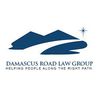
A retired Air Force JAG-colonel, Lawyer Skip Morgan spent a quarter-century in military law. Today, he uses this experience to help clients in courts-martial, Article 15s, military and veterans disability claims, Medical and Physical Evaluation Boards, Cadet Honor, Academic and Military Review Committees, disciplinary and disenrollment proceedings, Service Correction Board actions, and security clearance hearings and appeals under DOHA.
Comprehensive and attentive estate planning service with the personal touch. Wills, revocable and irrevocable trusts, supplemental needs (disability) trusts, powers of attorney, advance medical directives, military pension benefits, disability planning, and estate tax planning.
Full panoply of probate services - informal and formal probate of wills, will contests, adult guardianships and conservatorships, protective proceedings, trust administration and litigation, adoption, name-changes, court-approved trusts for disability and Medicaid eligibility.
Comprehensive and attentive estate planning service with the personal touch. Wills, revocable and irrevocable trusts, supplemental needs (disability) trusts, powers of attorney, advance medical directives, military pension benefits, disability planning, and estate tax planning.
Full panoply of probate services - informal and formal probate of wills, will contests, adult guardianships and conservatorships, protective proceedings, trust administration and litigation, adoption, name-changes, court-approved trusts for disability and Medicaid eligibility.
Services
Military Law is the term used to designate the body of statutes, rules, regulations, executive orders and case-law governing the armed forces.
It applies to military personnel, civilian employees, contractors and those who work or live on military installations and contracts, as well as veterans and their families.
As a 30-year member of the Air Force, twenty-five of which were spent as a judge advocate, Skip Morgan understands military law, The Uniform Code of Military Justice, as well as the anxiety and uncertainty associated with the system of justice in the military.
It applies to military personnel, civilian employees, contractors and those who work or live on military installations and contracts, as well as veterans and their families.
As a 30-year member of the Air Force, twenty-five of which were spent as a judge advocate, Skip Morgan understands military law, The Uniform Code of Military Justice, as well as the anxiety and uncertainty associated with the system of justice in the military.
Estate planning is the process whereby families develop a plan that ensures that the assets they have worked so hard accumulating during their lifetime are protected and distributed to those they love after their death.
Sound estate planning is not a one-size-fits-all proposition.
No two people, no two families, no two estates are the same, and they shouldn't be treated as though they were with mass-produced thumb-drive "estate plans."
The objective is to make sure your estate is handled promptly, efficiently, inexpensively and with minimal (or better yet, no) court involvement or litigation, all while minimizing or eliminating estate taxes.
Sound estate planning is not a one-size-fits-all proposition.
No two people, no two families, no two estates are the same, and they shouldn't be treated as though they were with mass-produced thumb-drive "estate plans."
The objective is to make sure your estate is handled promptly, efficiently, inexpensively and with minimal (or better yet, no) court involvement or litigation, all while minimizing or eliminating estate taxes.
In its most basic terms, probate is nothing more than a grant of authority to the executor (personal representative) to do what needs to be done with an estate.
At least in Colorado, the probate process is straightforward, informal, and fast.
Much of it can be done by the client, with just a little bit of coaching.
Uniform Probate Code II, which Colorado has adopted, is designed to allow personal representatives to do much of the estate administration independently without having a judge looking over their shoulders.
At least in Colorado, the probate process is straightforward, informal, and fast.
Much of it can be done by the client, with just a little bit of coaching.
Uniform Probate Code II, which Colorado has adopted, is designed to allow personal representatives to do much of the estate administration independently without having a judge looking over their shoulders.
The attached articles and narrative are for information only, represent personal thoughts and opinions at the time of the writing, and are not intended to be nor should they substitute for legal advice.
The amount of money involved in each case was small enough that no attorney could be interested in taking the case, and even if you could find one who would, the legal fees would undoubtedly exceed the recovery.
Is your organization "Tax-Exempt"?
For an organization to be exempt from federal income tax under section 501(a) of the Internal Revenue Code (Code), they need to apply to obtain an appropriate ruling (or determination letter) from the IRS.
The amount of money involved in each case was small enough that no attorney could be interested in taking the case, and even if you could find one who would, the legal fees would undoubtedly exceed the recovery.
Is your organization "Tax-Exempt"?
For an organization to be exempt from federal income tax under section 501(a) of the Internal Revenue Code (Code), they need to apply to obtain an appropriate ruling (or determination letter) from the IRS.
Reviews

Be the first to review Chester H. Morgan, II.
Write a Review

